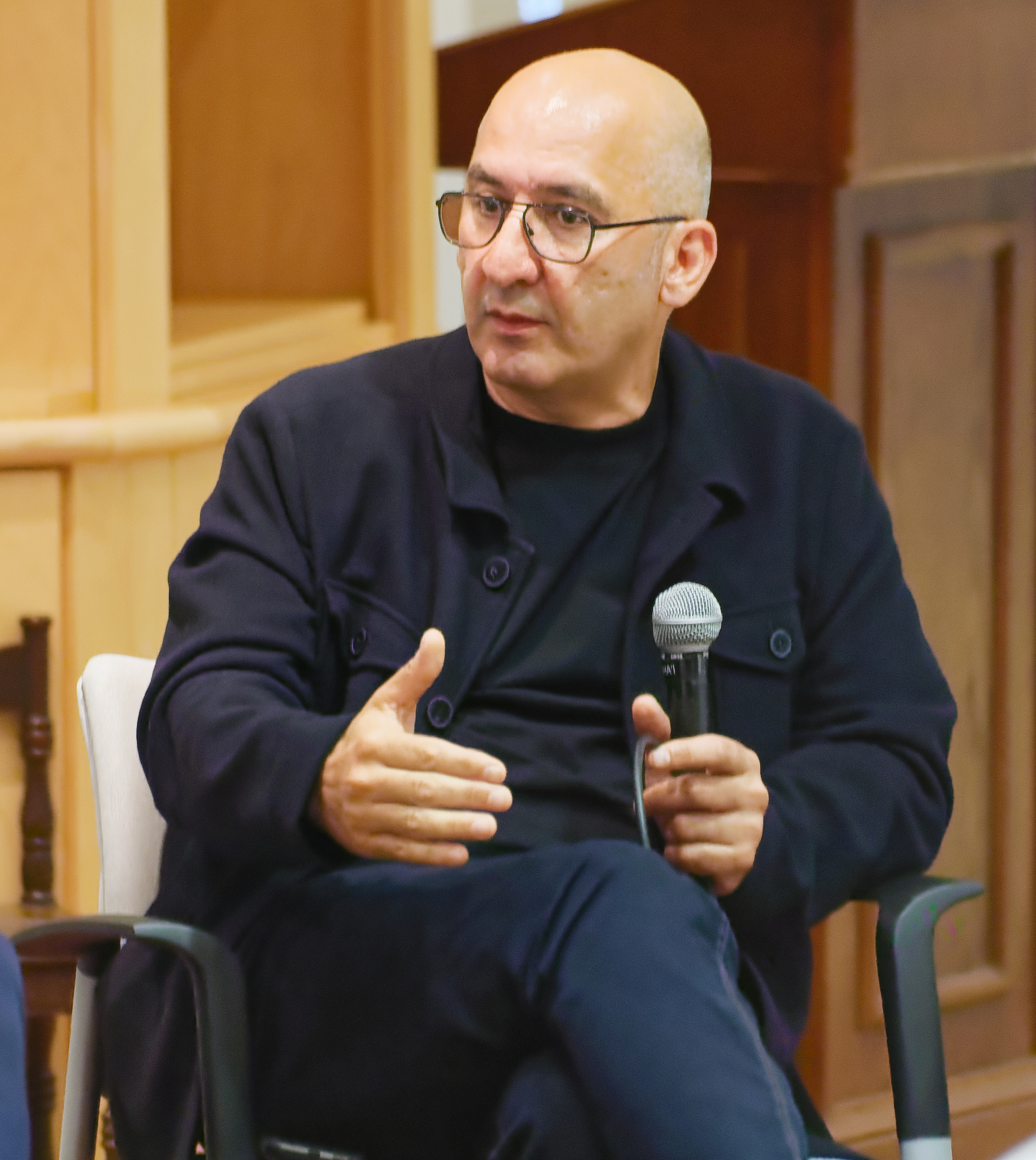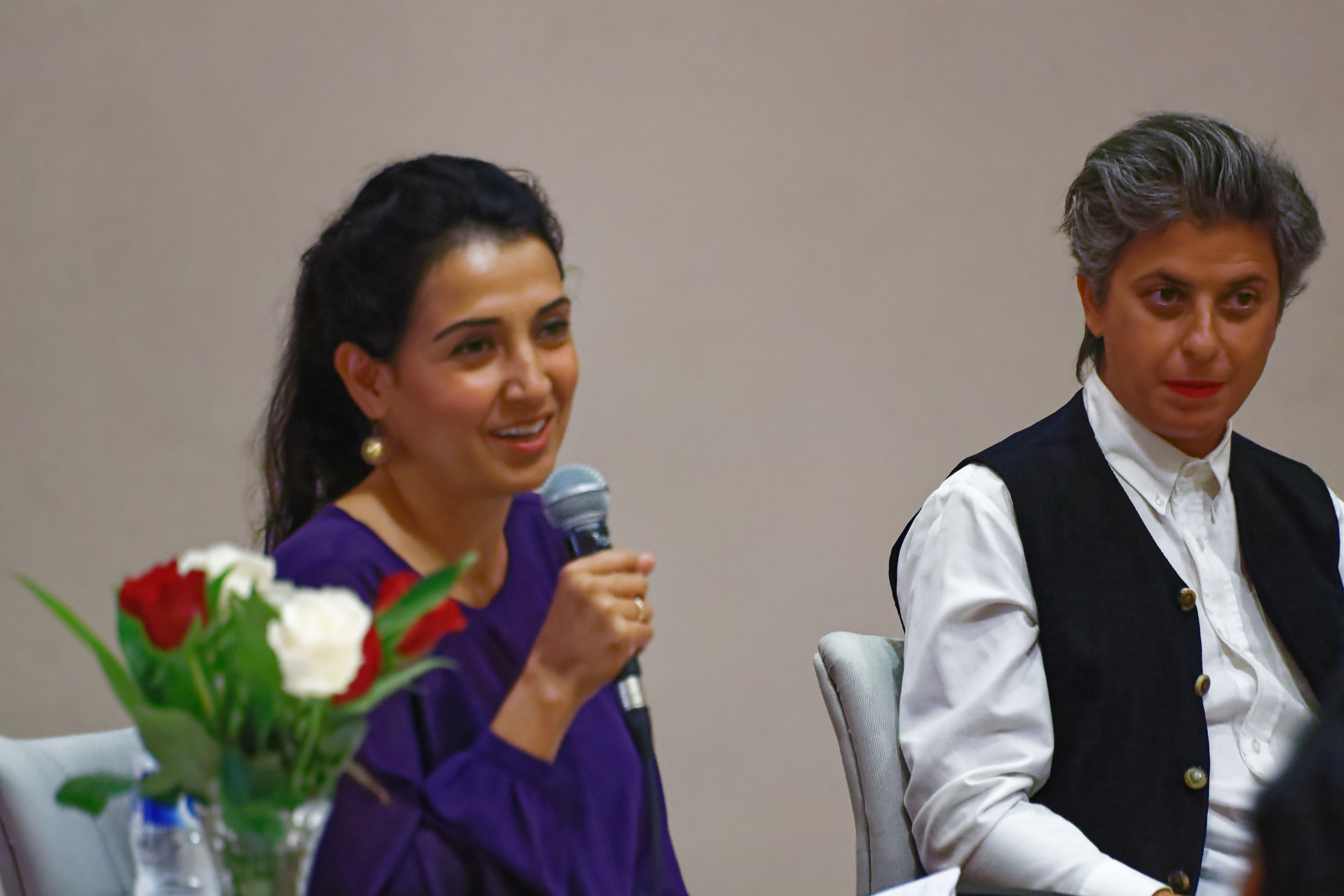More than 80 people gathered at the Toronto Bahá’í Centre for a public screening of the documentary, “‘Others’ In Their Own Land: The Institutionalized Persecution of Bahá’ís in Iran,” followed by a panel discussion with a group of distinguished Iranian-Canadians. The film was directed by Farid Haerinejad, an Iranian-Canadian journalist and film-maker now living in Germany.


The film focuses on the period following the Islamic Revolution and traces the impact of the persecution of the Bahá’ís on several individuals and families. It contrasts the personal lives of Bahá’ís with the public statements of Iranian officials, highlighting the stigmatization and oppression of the Bahá’í minority in Iran.
“I called the film “‘Others’ In Their Own Land” because it is always easier to be against something that you’ve been told is different from you,” said Haerinejad. The government propaganda vilifying Bahá’ís featured strongly in the film, demonstrating how a population can develop deep prejudices towards a group of innocent people.
The film screening was followed by a panel discussion with the director of the film, Samira Mohyeddin (a journalist and producer with CBC Radio One), and Ali Ehsassi (Member of Parliament for Willowdale and Chair of the House of Commons Standing Committee on Foreign Affairs and International Development). The event was moderated by Afsoon Houshidari, a member of the Toronto Bahá’í community.
Haerinejad, who has made several films about minorities in Iran, remarked that prior to making this film he had heard about the Bahá’í faith but did not know much about the Bahá’ís in Iran. He wanted to make sure that such a story was told truthfully and passionately and was glad that he could receive first-hand information from his Bahá’í friends.
When Haerinejad was asked what he learned throughout making the film, he immediately mentioned the resilience of the Bahá’ís. “The Bahá’ís do not play victim. They keep on going and don’t stop. I love that. They are creating their own path,” he said.
Mohyeddin and Ehsassi emphasized on the importance of education and gender equality and that the Bahá’ís in Iran are considered the country’s pioneers in those areas. Ehsassi added, “The Bahá’ís in Iran are an important part of the history of that country.” In addition, the panelists talked about the role of factual news reports and public education about ongoing atrocities in Iran. “The most important thing is not to normalize the terrible things that we are seeing in Iran. We have to be more resourceful and effective,” added Ehsassi.
In the end, the audience was welcomed to ask questions and share their thoughts and comments. One of the audience members asked the panelists what they thought could be done about the ongoing persecution of the Bahá’ís in Iran, “Keep doing what you are doing,” were the panelists' final words. As Bahá’ís remain involved in society, that will help many more to see the fact that Bahá’ís are not ‘others’, they are in fact a normal and necessary part of society which have and continue to contribute so much to its growth.
‘Others’ in Their Own Land is now available on YouTube.

